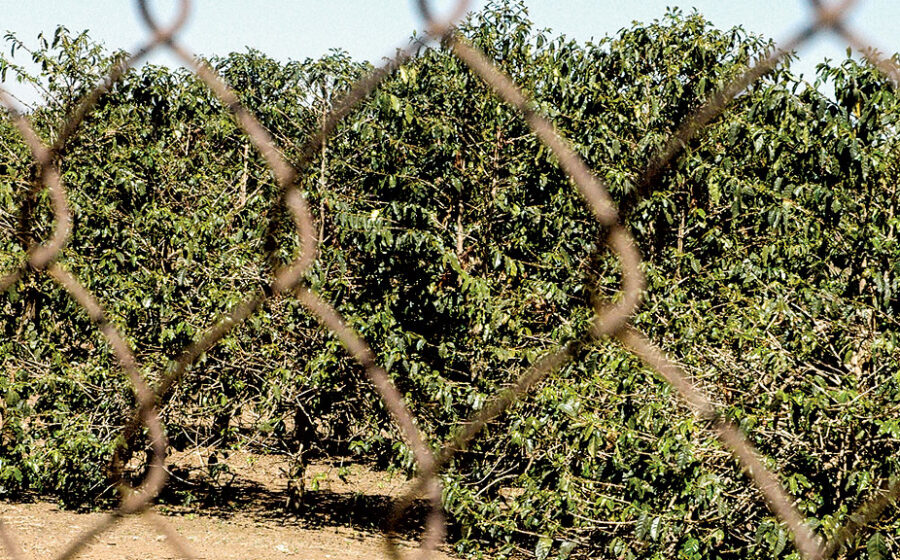[I]n April, Catholic Relief Services’ Coffeelands Program released a report with the fairly wonky title Farmworker Protections and Labor Conditions in Brazil’s Coffee Sector. Its sub-title got more to the point: Exploring Isolated Cases of Modern Slavery. It would be an overstatement to say a bomb was dropped when Coffeelands director Michael Sheridan presented the report at the Re:co symposium (the gist of the research had been known for a while), but hearing the words coffee and slavery spoken together always sends a jolt.
In 2013, Brazil’s Ministry of Labor and Employment updated its Dirty List of employers who were discovered to hold people in slavery, or, more legally accurate, in “conditions analogous to slavery.” This means workers are subjected to debilitating workdays, degrading conditions, debt bondage, and forced labor, all of which break Brazilian law. That year, fifteen coffee farms were on the list.
On the fifteen farms, the number of people rescued by the ministry ranged from six to seventy-five, with the average number in the mid twenties.
CRS teamed with the non-profit Repórter Brasil to dig into the list. The team found that the people most at risk are impoverished, migrant, Afro-Brazilian men, the vast majority of whom are descendants of slaves. Most of them were recruited by labor brokers, a common and often exploitative means of labor acquisition across coffee lands. The farms most likely to enslave workers are mid-sized farms on hilly terrain that precludes mechanization, making them more dependent on labor. Few of the employers who enslaved their workers were prosecuted.
While each farm violated the law in its own way, one commonality was none supplied their workers protective gear while applying pesticides. If it was available at all, the workers had to buy it. Living conditions were also universally deplorable, filthy, and unsanitary. Some workers were overseen by armed foremen. Debt bondage and confiscation of IDs was rampant. The report says that when ministry inspectors arrived at one farm, it was pouring rain and the workers had no rain gear. Some even had no shoes.
As awful as this is, the report stresses that these fifteen farms represent a fraction of a percent of Brazil’s 287,000 farms. While there are certainly more farms enslaving workers, even if the problem was 100 times worse than reported, that would still ensnare fewer than 1 percent of Brazil’s farms. That’s not meant to minimize the issue, but shows this isn’t a problem saturating the industry. It also shows that with enough effort, this is a problem that can be fixed.
Looking toward a solution ties in with one of the most important recommendations that Sheridan makes: Brazil should not be punished for this. On first look, that seems backwards. Shouldn’t we punish a country that doesn’t protect its citizens? The impulse makes sense, but it’s wrong on at least two fronts. First, boycotting a country’s products often hurts those least able to absorb the economic pain. In our industry, that means farmworkers. Second, and more importantly, we only know about these travesties because Brazil has laws against them, and then enforced those laws by investigating farms and reporting violators. Punishing them would tell Brazilians, especially coffee farmers, that this transparency is harmful; that’s certainly the lesson other countries would learn.
We need to applaud Brazil for this type of work, and encourage other countries to follow. Even with that positive message, Brazilian farmers will bristle at the word slavery. At a forum following Sheridan’s Re:co lecture, an upset Brazilian farmer defended his country and fellow farmers, asking why his country, which has robust and enforced labor rules compared to many coffee origins, was being singled out. It’s an unfortunate response, but a natural one.
Well before CRS released their report, Brazil’s labor transparency was under threat. In 2014, a construction lobby successfully petitioned Brazil’s Supreme Court for an injunction against the Dirty List, arguing it violated the due process protections of businesses. While the information that would have been released in the Dirty List has found ways to get to the public, there’s no timeline for the injunction to be lifted. It’s proof of how fragile transparency can be.
(Update: Brazil’s Supreme Court has lifted the injunction on the Dirty List. CRS takes a look at the political and policy upheavals that led to it being reinstated.)
Eradicating slavery and forced labor should be a priority for our industry. Two of the declared hopes of the report are to “raise our collective ‘farmworker IQ’” and to bring farmworkers into the conversation about sustainability. How the workers who picked our coffee were treated should be a question we ask about every coffee we buy.
—Cory Eldridge is Fresh Cup‘s editor.













